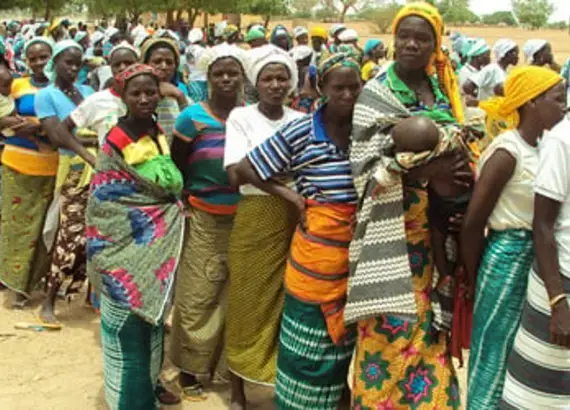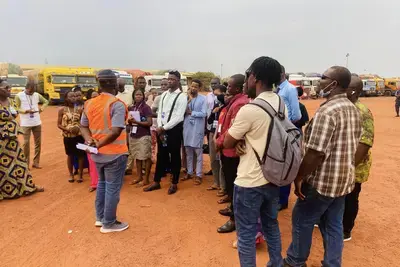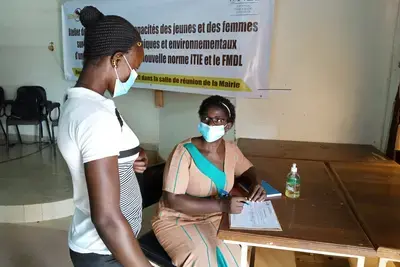
Success Story
Burkina Faso Campaign Brings 16,000 Women Closer to Voter Registration
For Burkina Faso’s last election – a presidential poll in 2010 –difficult and confusing requirements resulted in overwhelmingly low voter registration. Only three million of the country’s six million eligible citizens registered. And of those, only 1.7 million showed up at the polls. Women, in particular, faced formidable obstacles because of a requirement that citizens obtain a birth certificate before they can register.
The country’s residents will vote next on Dec. 2 in the nation’s first joint local and National Assembly elections. In an effort to register more voters, a program coordinated by NDI with support from the Swedish International Development Cooperation Agency, set a goal to help 10,000 women obtain birth certificates. It far exceeded expectations and ended up helping 16,000 women seeking to vote.
To get a birth certificate, citizens must have two witnesses, such as their mother or a midwife, to vouch for their birth in the country. But many women leave their birth villages when they get married and coming back to find witnesses can be a daunting task. Burkina Faso is one of the world’s poorest countries and for a woman to leave her village for an entire day to complete this task can cost more than she can afford.
To call attention to the low number of registered women, as well as the obstacles they faced in getting birth certificates, NDI talked with the National Independent Election Commission (Commission Electorale Nationale Indépendante--CENI) and the Ministry of Interior, as well as political parties and civil society organizations.
As a result, representatives of the CENI, the Ministry of Interior, civil society organizations and political parties partnered with NDI to create a strategy to mobilize women and issue birth certificates. That led to representatives of NDI, its partner organization, Centre Afrika Obota, and a staff member from the Ministry of the Interior responsible for issuing birth certificates traveling to the five regions of the country with the lowest registration rates—the Southwest, Mouhoun, Sahel, Northern and Eastern regions -- to bring women to a central location where they could obtain birth certificates. The operation lasted about 15 days in each location.
Public service announcements on the radio and short street plays spread the message to women throughout the five regions about where and when registration would be available, including transportation. Thirteen radio stations aired announcements in six local languages and eight theater groups gave a total of 26 public performances about including women in the electoral process. Audiences for each performance ranged from 200 to 600 people.
The attention paid to the importance of civil documents such as birth certificates for voting created so much enthusiasm that men also asked to participate in the program.
NDI’s partner Afrika Obota plans to assess how many women still need birth certificates and hopes to organize another campaign to help more women vote in December.
Related:
Published Oct. 19, 2012
Updated Oct. 23, 2012



